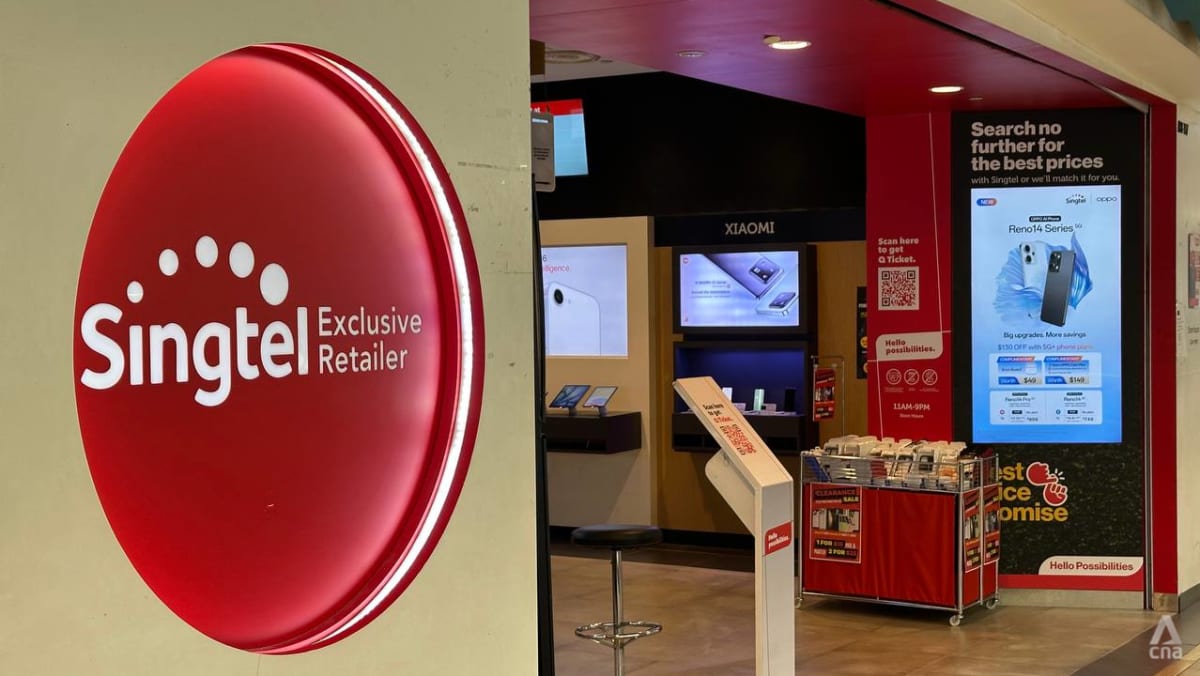SINGAPORE: As Singapore’s telecom sector enters a period of consolidation, one player has stayed noticeably quiet.
Earlier this week, Keppel announced plans to sell M1’s telecom operations to Simba Telecom, while StarHub confirmed its full acquisition of MyRepublic’s broadband business.
But Singtel – the market leader and the oldest telco in the country – has made no similar moves.
Business and brand analysts told CNA this is because it does not need to. Singtel’s diversified business model and strong brand loyalty – including among younger customers who may not care about the company’s legacy – give it the flexibility to sit out a domestic reshuffle.
“Singtel as a business is in a different class compared to the other telcos such as StarHub and M1,” said tech industry observer Oo Gin Lee.
Only about 27 per cent of Singtel’s revenue comes from Singapore. The rest is spread across investments in Australia, India, Indonesia, the Philippines and Thailand, he said.
Associate Professor Hyeokkoo Eric Kwon of Nanyang Technological University (NTU) said he expects Singtel to avoid price wars and instead deepen its push into enterprise solutions and data-centre services.
“It has no urgent need for domestic mergers and acquisitions and will probably focus on execution as rivals digest recent moves,” he said.
Mr Oo added that anti-competition concerns could also make acquisitions difficult for a firm of Singtel’s scale.
Singtel Singapore CEO Ng Tian Chong told CNA that the company is investing in infrastructure, products and services to support both customers and the broader economy.
“As needs and industries evolve, we’ll continue to adapt, innovate and deliver experiences that matter to both our consumers and enterprises,” he said.
“It’s this agile mindset and forward-looking approach that has kept us relevant over the years, earning the trust and loyalty of our customers.”
FIRST-MOVER ADVANTAGE
Singtel’s early dominance has helped it build significant barriers to entry, with extensive infrastructure and network coverage, said Ms Shirley Tee, deputy director for industry and innovation at Nanyang Polytechnic’s School of Business Management.
“The company’s first-mover advantage has allowed it to establish a robust customer base and develop deep relationships with both consumers and enterprises,” she said.
Mr Pulse Tan, principal consultant at Ninety One Branding and Marketing, also pointed to Singtel’s head start as its biggest advantage.
“When they were the only brand in town, they provided affordable and reliable services and earned that early brand loyalty,” he said. “That early trust still sticks, especially with boomers and Gen X who’ve been with Singtel since day one.”
While Singtel’s services may not be the cheapest, the firm commands “emotional loyalty” by providing a sense of safety and peace of mind, said Singapore University of Social Sciences business school’s Associate Professor Lau Kong Cheen.
Still, loyalty alone is not enough, said Mr Lee Haoming, CEO of brand consultancy Louken Group.
“Customers’ needs change with the times, shaped by new technologies, shifting lifestyles and evolving expectations. A brand that stands still will eventually lose relevance, no matter how loyal its base once was,” he said.
